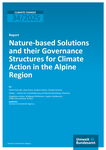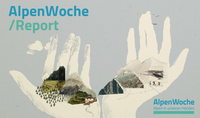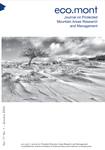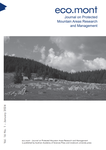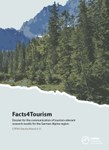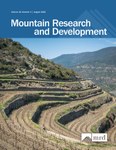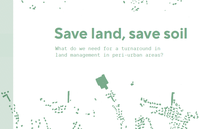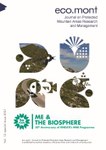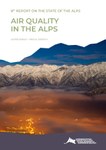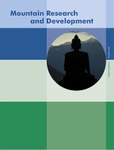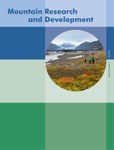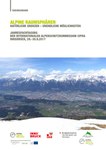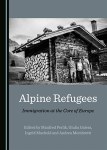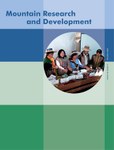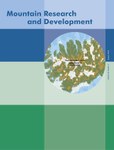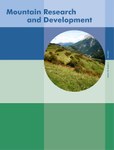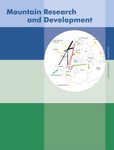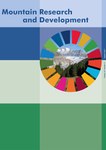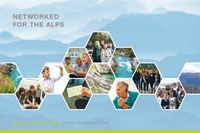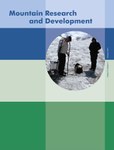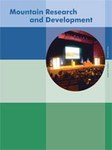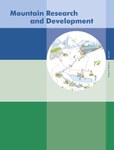Publications
Climate and small water cycles (FR)
Solutions for the new water paradigm Read More…
Report: Nature-based Solutions and their Governance Structures for Climate Action in the Alpine Region
This report analyses the potential of Nature-based Solutions (NbS) in the Alpine area to tackle challenges of climate change and biodiversity loss while simultaneously addressing societal challenges. Read More…
AlpWeek 2024 Report
The AlpWeek 2024 Report highlights the main tools and ideas that were discussed during the AlpWeek. It focuses on the three priorities of the Multi-Annual Work Programme (2023–2030) of the Alpine Conference (MAP): Biodiversity, Climate Action, Quality of Life. Read More…
eco.mont
Journal on Protected Mountain Areas Research and Management, Vol. 17 / No. 1 Read More…
Dossier Facts4Tourism
The dossier "Facts4Tourism" is a collection of facts and findings from science and research that deal with topics and challenges of tourism in the (German) Alpine region. In addition to background information, definitions of terms and practical examples, scientific publications and current research results are presented in a generally understandable way and with the help of graphics. The topics covered include different forms of tourism, their effects, the management of visitors and the challenge of "resilience in tourism". Read More…
eco.mont - Vol. 15 / No. 1
“eco.mont – Journal of Protected Mountain Areas Research and Management” was founded as a joint initiative of the Alpine Network of Protected Areas (ALPARC), the International Scientific Committee on Research in the Alps (ISCAR), the Austrian Academy of Sciences and the University of Innsbruck. “eco.mont” offers a platform specifically for scientists and practitioners working in and on protected mountain areas in Europe and overseas. Read More…
Mountain Research and Development Open Issue | Vol. 42/3
Four studies from Italy, France, and Cyprus examine how production of Mediterranean mountain food specialties—cheese, beef, and wine—can support sustainable development in the producing regions. Insights for better visitor management in protected areas are offered in an article from Nepal, using geolocated social media images, and in one from the French Alps, based on an analysis of visitors’ attitudes. A study from South Africa’s Drakensberg Mountains analyzes urbanization and land cover change. Read More…
Alpine Towns - Key to Sustainable Development in the Alps
9th Report on the state of the Alps. Read More…
Save land, save soil
What do we need for a turnaround in land management in peri-urban areas? Read More…
Eco.mont special issue: Biosphere Reserves in Mountain Regions
On the occasion of 50 years Man and the Biosphere Programme the Austrian MAB National Committee has organized and financed a special issue on Biosphere Reserves in Mountain Regions in eco.mont. The special issue contains 16 articles from four out of five MAB regions. Read More…
Mountain Research and Development Vol 39, No 4: The Role of Culture in Transformation Towards Sustainable Development in Mountains
Culture is fundamentally relevant for sustainable development. This focus issue shows how mountain communities draw on their cultural heritage and integrate new knowledge to shape their own innovative and locally-based development pathways. It also explores ways of integrating culture into development practice and policy. Studies focus on mountain communities in Chile, Italy, Russia, Ecuador, Georgia, Nepal, and China. Read More…
Mountain Research and Development Vol 39, No 2: Adaptation to Climate Change and Sustainable Mountain Development
Papers focus on scenario planning in Iceland; risk awareness in Austria; alpine pasture assessment in France; the role of different knowledge sources in adaptation in Venezuela and Colombia, Ecuador, and the Indian Himalaya; local adaptations to water scarcity in the Hindu Kush–Himalaya; declining glacier water in the Mongolian Altai; national glacier monitoring worldwide; and adaptation initiatives in African mountains. The issue was guest-edited by Carolina Adler. Read More…
Alpine Spheres: Natural limits - Infinite possibilities
Conference documentation CIPRA Annual Conference 2017 Read More…
Alpine Refugees. Immigration at the core of Europe
This collection of essays highlights how given Alpine territories in Austria, Italy, and Switzerland are currently facing challenges imposed by migration, the barriers and limitations they are encountering, and the extent to which migration triggers policy and territorial innovations that can generate beneficial impacts for both migrants and local inhabitants. Read More…
Mountain Research and Development, Vol 39, No 1, available online and open access
Papers in this issue cover food sustainability issues in Kenya and Bolivia and in Chile; the water–food–energy nexus and tourism in Nepal; perceptions of parks in a neoliberal context in Poland and in Switzerland; behavior change of backcountry tourists in Switzerland; and postdisturbance forest recovery in Slovakia. The issue closes with an IMS member’s portrait and three tributes to Bruno Messerli. Read More…
Mountain Research and Development Vol 38, No 4: Food Security and Sustainable Development in Mountains
Four papers present opportunities and challenges for sustainable food systems worldwide and in Nepal, Pakistan, and Ladakh. Others explore the contribution of caterpillar fungus to livelihoods in India, the economics of walnut forests in Kyrgyzstan, dwarf pine cover in Slovakia, bacteriological characteristics of drinking water in Nepal, the impact of changing glacier conditions on mountaineering in New Zealand and of ski tourism on wildlife in Poland, and land use dynamics in the Argentinian puna. Read More…
Mountain Research and Development Vol 38, No 3 available online and open access
Topics are: the foresight process as a means of effective conservation in a national reserve in Peru, local perception of a dam project in Darjeeling, regeneration patterns of key tree species in Garhwal, water-holding of forest litter in China, the role of Acacia decurrens in Ethiopia, a high-resolution map of the world’s mountains and open access tool to compare mountain extents, and immigration of refugees to the European Alps as social innovation. Read More…
Mountain Research and Development Vol 38, No 2 available online and open access
Papers explore self-governed small-scale irrigation in Tajikistan; how Kenyan commercial horticulture affects water resources; the impact of extensive grazing on forest soils in Mexico; how mining restoration measures influence vegetation in Peru; human impact on vascular plants in Ethiopia; the impact of climate change on treelines in Nepal; and how climate warming affects snow availability in a ski area in New Hampshire, USA. Read More…
Mountain Research and Development Vol 37, No 4: Migration and Sustainable Development in Mountains
This focus issue on implications of out- and in-migration for sustainable development in mountains offers papers on asylum seekers, amenity migrants, young in-migrants, depopulation, the elderly, the structurally poor, and resettled migrants; they analyze social, environmental, and economic impacts of migration in mountains in Europe, Chile, Georgia, Nepal, Kyrgyzstan, Tibet, and Ethiopia. Further topics are vegetation, wildfire observation, and hydro-sociology. Read More…
Mountain Research and Development, Vol 37, No 3: Mountain Forests and the SDGs
This Focus Issue assesses the role of mountain forests in relation to the UN Sustainable Development Goals. After an Introductory Essay, papers cover gender issues in agroforestry (Ethiopia) and community forests (Nepal), small-scale mountain farm forestry (Austria), rubber and the rural economy (China), a throughfall-exclusion experiment (Bhutan), mountain forest resilience (India), Andean forest landscape research, US federal forest productivity, rangeland property rights (Bhutan), and urban spatial growth modelling (China). Read More…
Mountain Research and Development, Vol 37, No 1: Special Issue
This issue offers 14 peer-reviewed articles focusing on questions related to water, risk reduction, energy, land use change, biodiversity, vegetation ecology, conservation, gender policy, ethnobotany, indigenous knowledge, economic opportunities, mobility, and glacier monitoring—always with sustainable development in mind. Geographically, papers present insights from Nepal, China, Thailand, Kyrgyzstan, Poland, Switzerland, Italy, Ecuador, and Colombia. Read More…
Mountain Research and Development, Vol 36, No 4: Mountains of Our Future Earth
Papers emerged from the 2015 Perth III mountain conference and contribute to Future Earth. The first 3 present a tool to compare mountain photos, gender-sensitive participatory agroforestry, and social impact assessment; others explore seedling regeneration, ecosystem services, visitors’ use of energy, in-migration dynamics, environmental impacts of migration, and farmers’ decision-making. The last 3 are review-based agendas for future mountain research Read More…
Mountain Research and Development, Vol 36, No 2, on Modernization and Sustainable Development in Mountains
Papers address modernization and sustainable development, showing that some aspects of modernization can lead to sustainability—eg improved energy use in Europe, multilocal livelihoods in Pakistan, biosphere reserves in Europe, agrotourism in Thailand, or improved governance in Nepal. Further papers deal with carbon storage in Thailand, forest composition in China, stump debarking in the Czech Republic, treelines in the Andes, and hydropower energy storage in Europe. Read More…
Global Soil Biodiversity Atlas
The JRC and the Global Soil Biodiversity Initiative (GSBI) publish the first-ever Global Soil Biodiversity Atlas that maps the soil biodiversity of the entire planet. This unique Atlas pays tribute to soil – the silent engine that keeps the planet alive – by providing a detailed analysis of soil organisms and the threats to soil biodiversity at global scale. Read More…
Olympic Realities – Six Cities after the Games
Since 2012 Bruno Helbling has travelled 6 Cities to discover and photograph Olympic sport venues. A large-format photo book with text essays by six journalist and experts will be published in october 2015 by Birkhäuser Publisher. Read More…

